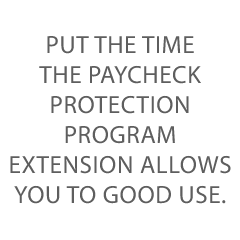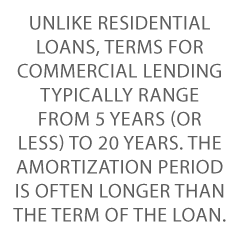What You Need To Know About Bank Loans
Seeking the best sources of funding for your business can feel complex and overwhelming. Most young entrepreneurs today feel like bootstrapping their business feels safer and perfect for their needs.
Unfortunately, most start-up businesses cannot thrive without adequate funding. Since few businesses start with a generous budget, you must seek alternative sources. Loans, sponsorships, partnerships, angel funding, co-investors, and grants are some of the options known to many.
Most of these options require collateral of some sort. Collateral is an asset that you can use to secure a personal or a business loan. In layman’s speak, it’s a promise that you can still cover your loan when you cannot make the payments.
Collaterals can be seized and resold to cover the remainder of the loan. For business loans, assets like business equipment, vehicles, buildings, and inventory can be used as business loan collateral. You can even use accounts receivables to pay off the loan if necessary.
Like any other lenders, banks put a lien on the asset pledged as collateral for the loan. If the borrower falls on hard times and cannot keep up with the payments, the lender has the right to seize the collateral. It is a guarantee that the lender still gets paid no matter what. By pledging collateral, a business owner shows that they are not a high-risk borrower. It leads to reduced interest rates and a more reasonably affordable loan plan.
Alternatives
Today, most business loans and credit lines do not come from conventional banks. There are alternative lenders and investors like Credit Suite who can help you with the steps needed to secure a business loan.
We have a wide array of legitimate funding solutions, each with its own different and unique terms that can match your credit profile. Credit Suite’s business loan programs manage the rates and requirements to help increase your chance of getting approved.
High-value collateral often gets matched with a higher loan value which can be beneficial for the lender. It is logical for business owners to choose a loan option that reflects their capacity to pay. However, not many are aware that they can use less popular options as business loan collateral instead of their properties.
The good news? If you own a public stock, you may use that as collateral to secure a business loan. This article explores how public stocks can be your collateral and what makes them such a good option.
Why Use Public Stocks As Business Loan Collateral?
Public stocks are liquid assets which makes them an acceptable form of collateral. Everyone in the industry knows that these stocks have passed compliance standards. Hence they guarantee against the unlikely event of a default. It is natural for any individual to feel a degree of protectionism on what they hold dear. It includes real estate, properties they own like vehicles or artwork, and it extends to stocks. However, in the unfortunate event of a seizure, public stocks affect you differently.
You can still operate your business, protect your image, and operate as usual. Treat your public stocks as one of the assets that can help your business continuity process. It is a lifeline that can save you when you cannot make payments without sacrificing the assets that help your business move (i.e., laptop, vehicles, house, etc.).
Overall, what matters is that you are protected from your liability against future payments—the benefit trumps, especially when the need for funding is huge. Most people are unaware that you can use public stocks as such and so the next section will guide you on how to use them so that you can feel more confident in deciding that this is the best option for you to take.
Demolish your funding problems with 27 killer ways to get cash for your business.
5 Tips In Using Public Stocks As Collateral To Secure Business Loans
-
Track your assets’ worth.
Lenders will assess your company’s history, business credit, balance sheet, and equity contributions. When you pass the audit, that’s the time when you submit your collateral for review.
Defaulting on a loan has dire consequences for your business and personal life. It would help if you took a realistic stance when you track your assets. Specifically, your public stocks require an exhaustive review. Consider asking for professional help to help you see how your stocks fare.
Feel more confident in your investment decisions by staying up to date on research-based information, current trends, and market analysis. When it comes to your business and money, a serious reputation is important. You can rely on professional advice from experts like Charlie Shrem, Matt McCall, David Stein, and Josh Bannerman to navigate key investing issues.
A good credit rating increases your loan approval. Using public stocks as collateral, how your stocks perform, your investment history, and your level of stock ownership can all influence your loan-to-value ratio. Look for wiggle rooms in terms of restructuring, repayment, frequency, and scheduling. These are basic areas you can cover in negotiating.
-
Ask for lower interest rates.
Public stocks can help you get lower interest rates because the collateral is being held. It is because of the reduced risk associated with public stocks. This reduction makes lenders more comfortable because there is little chance of default. Depending on your stock’s value and performance, lower interest rates may be warranted. It does not hurt to ask for an interest reconsideration.
Demolish your funding problems with 27 killer ways to get cash for your business.
-
Ask for greater repayment flexibility.
This country is built on its fair and reasonable business practices. It extends to flexible loan repayment options. Additionally, it is beneficial to both parties as this essentially guarantees loan payment and profit based on interest.
There are common repayment flexibility schemes in the market to minimize the chances of default. These are accelerated repayment which leads to loan recalculation, step-up loans where the value matches a borrower’s growth potential, and balloon repayment scheme where the loan amount is paid in the last installment.
High-performing stocks can be your leverage for greater repayment flexibility. In the event of trouble making payments, you may adjust the rates or payments depending on your lender’s programs and assistance.
-
Consider alternative lenders.
Sometimes, conventional banks are not the right fit for your business. Other start-ups claim that alternative lenders can offer funding that aligns with their goals, structure, and profitability. At Credit Suite, our contemporarily diverse strategies can help your business secure the funding you need. Our client’s testimonials prove how effective we are in our role.
Demolish your funding problems with 27 killer ways to get cash for your business.
Understanding The Risks
There are no personal guarantees when you use public stocks as collateral. How your public stocks perform on the market will vary for sure. If the borrower defaults, the lender can seize and sell the business loan collateral. However, if the collateral sells for less than the debt value, the lender cannot seek that deficiency balance from the borrower.
Therefore, public stock collateral is considered as nonrecourse debt. Due to the risks, lenders generally allow only 50% to 60% loan-to-value ratios. Typically, lenders underwrite these collaterals with more care compared to full recourse loans.
Depending on the kind of loan and the value you are applying for, public stocks as collateral are primarily attractive only when you own significant ownership in the company’s stock. Owning penny stocks or junk bonds will only matter if the value is high, but until it does, you have a better chance of securing your business loans with stocks that have high market value.
When we talk of public stocks, the image and quality of the company also matter. It communicates stability which helps secure the loan. The lender communicates with a broker who tracks the daily value of the stocks.
What if the Value of the Stock Decreases?
Should the value decrease, the lender may require more money (or additional collateral). Before you decide to submit your stock portfolio as business loan collateral, ask yourself whether this is a risk you are willing to take.
Remember when Apple stocks went down? Everybody seems to know when this happened, and for good reasons. All eyes watch when the big players lose. When we talk about stocks used as collateral, only significant stocks are considered. At the most basic, this can mean market value, the number of stocks, and degree of ownership.
When your stock’s market value drops, your collateral’s value might go down as well. Though this does not immediately mean that you need to submit more collateral, there’s a line drawn to secure your lender’s threshold. If the market drops far enough, there is a risk that you may owe more than the original amount.
Some Friendly Reminders
Most business owners who want to push forward understand these risks. Your chances of completing loan payments are significantly increased when coupled with confidence in their product or service, along with sensible market research.
Out-of-the-box thinking pays off in business. Look for additional income streams that you can integrate into your business. At Credit Suite, our Partner Program offers you a unique way to boost your sales and exceed your targets.
… And
Whatever kind of service or product you sell, you can point your customers to our program to complete the sale. We also provide you with all the training and information you need when you become our partner. It’s a win-win situation for the both of us.

Janine Ikan is a teacher, mental health advocate, and freelance writer for The Stock Dork. She has written on psychology, digital marketing, sustainability, and new age spirituality. Her passions include arts, culture, travel, food, social sciences, and community development. She lives in the Philippines with her husband, their energetic toddler, and six cats.
The post How to Use Public Stocks as Business Loan Collateral – and Why You Want to appeared first on Credit Suite.





 for each business. This is a financing profile that is intended to help the company improve funding possibilities, access new opportunities, and find the best funding solutions.
for each business. This is a financing profile that is intended to help the company improve funding possibilities, access new opportunities, and find the best funding solutions.





